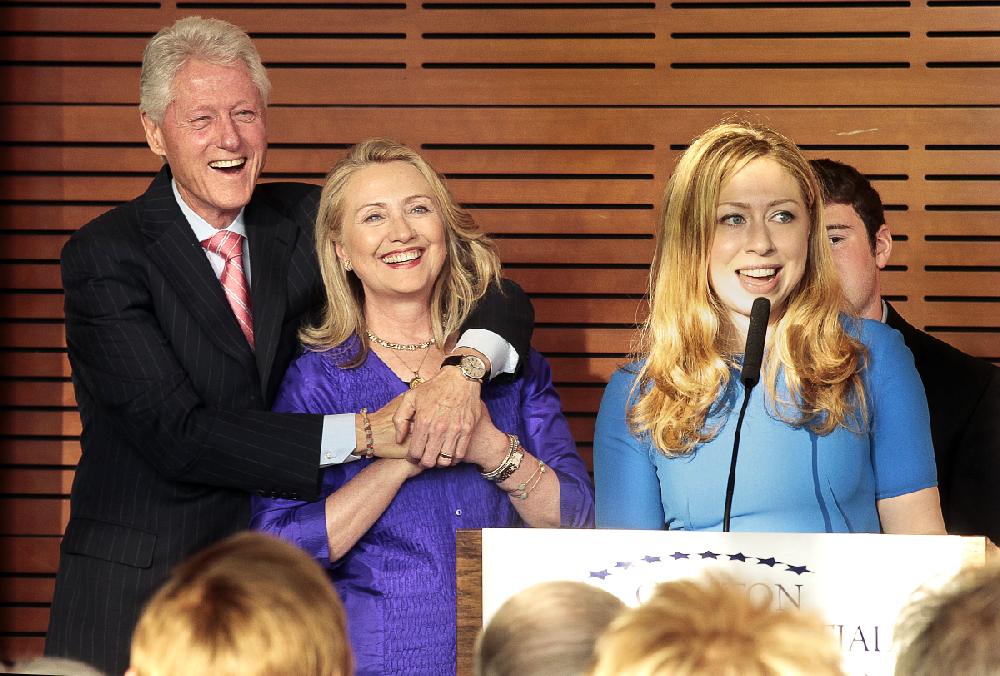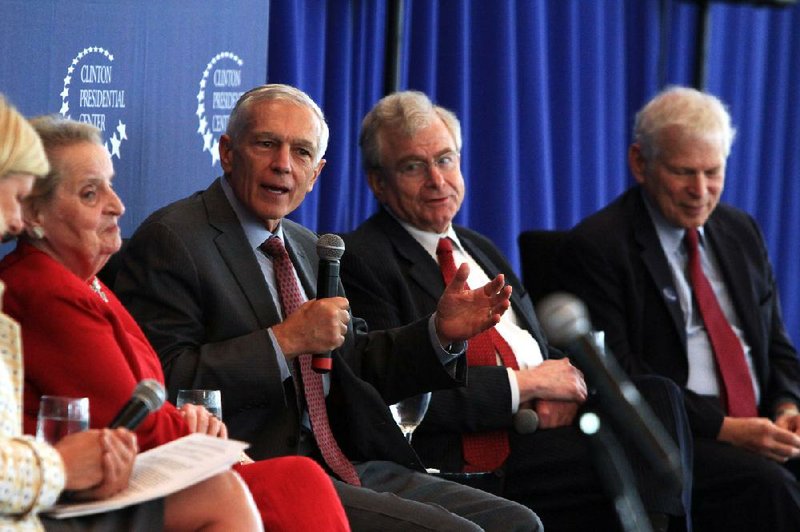More than 300 documents newly declassified by the CIA show how U.S. intervention in the Bosnian war led to a successful peace agreement, even though many decisions by U.S. leaders weren’t broadly supported by the American public at the time, former President Bill Clinton told a Little Rock audience Tuesday.
The documents - which include transcripts of top-level decision makers’ meetings, secret memorandums, diplomatic cables and intelligence assessments - show the importance of collaboration between intelligence officials and policymakers in making effective decisions, he said at a Clinton Presidential Center event.
The documents made public at the Tuesday event are the youngest collection released in the CIA Historical Review Program’s 20-year existence.
About 100,000 people died and about 2 million people were displaced in the conflict that started in 1992 among Serbs, Muslims and Croats when leaders fought for control of the region after the breakup of Yugoslavia. But, despite a lack of effective European intervention, polls showed many Americans were resistant to U.S. involvement, Clinton said.

Clintons
“When [members of the American public] tell you not to do something, what they’re really telling you is, ‘Be careful please … Don’t do a lick more than you have to, don’t spend a dollar more than you have to, and you had better be right,’” Clinton said.
History shows the United States was right to support NATO airstrikes in the region, to provide humanitarian aid and to work with leaders to broker a peace agreement in 1995, he said. And those decisions wouldn’t have been made without precise, timely intelligence that helped leaders use U.S. resources effectively, Clinton said.
The actions showed that “America would take serious risks to keep innocent Muslims from being killed” and the importance of democracy after the Cold War, he said.
“We did have a dog in the Bosnian fight … and they made sure that our dog won that fight,” Clinton said of an interagency intelligence task force assembled to monitor the situation. “The peace has held. The future is up to the Bosnians.”
Clinton spoke after a panel discussion that included former U.N. Ambassador and Secretary of State Madeleine Albright; former Supreme Allied Commander of Europe Gen. Wesley Clark; former National Security Adviser Sandy Berger; Leon Fuerth, former national security adviser to Vice President Al Gore; and former CIA Deputy Director John Gannon.
It was the first time a president has participated in a CIA declassification event, said Nancy Soderberg, a former Clinton administration official who helped coordinate the release.
An executive order Clinton signed in 1995 created a uniform system for classifying, safeguarding and declassifying national-security information. That order has led to the declassification of thousands of documents, many of which are curated in online collections through the CIA’s Historical Review Program.
Clark praised the specific nature of the intelligence documented in the collection, down to meteorological reports that helped direct humanitarian aid drops in the wintertime.
And Albright said the documents show that U.S. policymakers often disagreed. Berger encouraged top officials to “break the eggs in order to really understand what was going on” and to make the right decision, she said.
Formerly secret notes from a February 1993 meeting, for example, show that Albright criticized the United States’ early treatment of the region as “a peripheral interest,” saying that the policy at the time “legitimizes ethnic cleansing.”
“I understand that deciding to use American forces in Bosnia would be crossing the Rubicon,” she said. “But we should think about whether sweeping the problem under the rug creates more problems.”
Clinton said the intelligence strategies the group used should be a model for future situations, saying the importance of cooperation in the effort was “not one of those lessons that ought to have to be relearned.”
He encouraged additional releases of timely information to give the public insight into their leaders’ thoughts.
“I believe that this is an important part of maintaining the public trust,” Clinton said. “As soon as danger has passed, we ought to give [the public] the information so they can figure out whether we did the right thing or not.”
Front Section, Pages 1 on 10/02/2013

